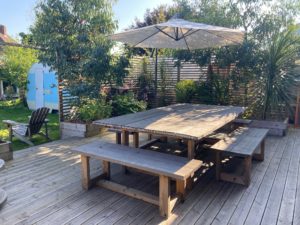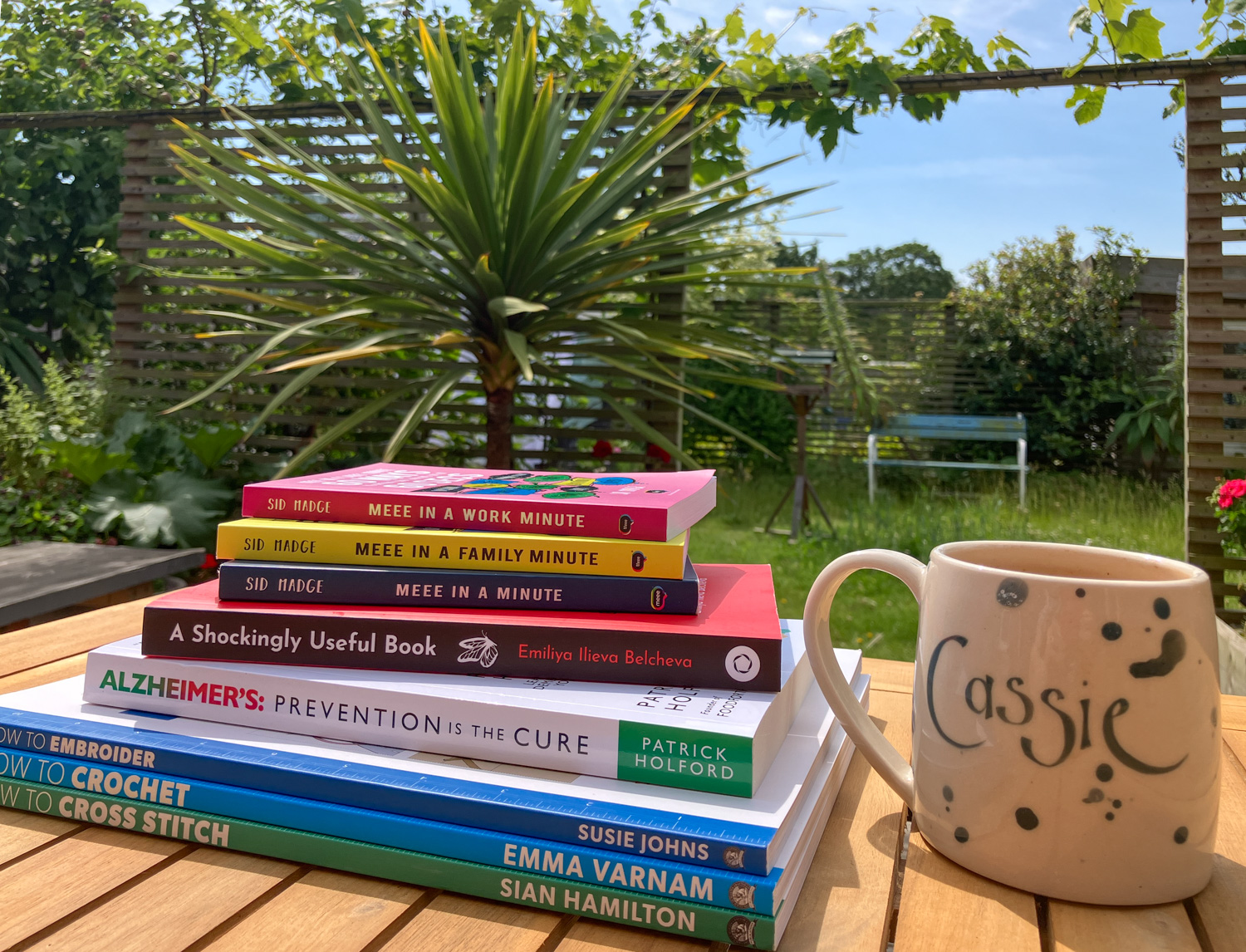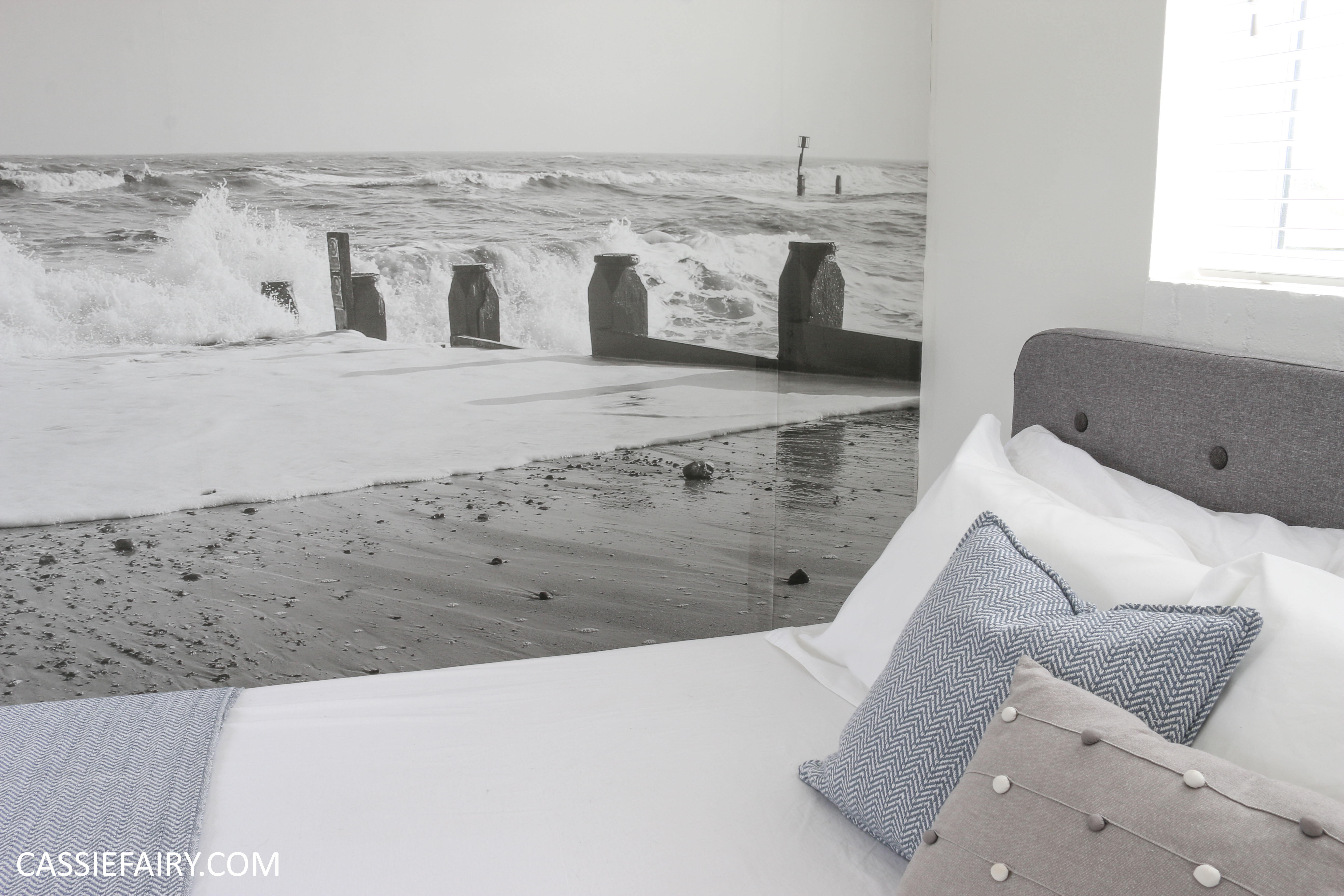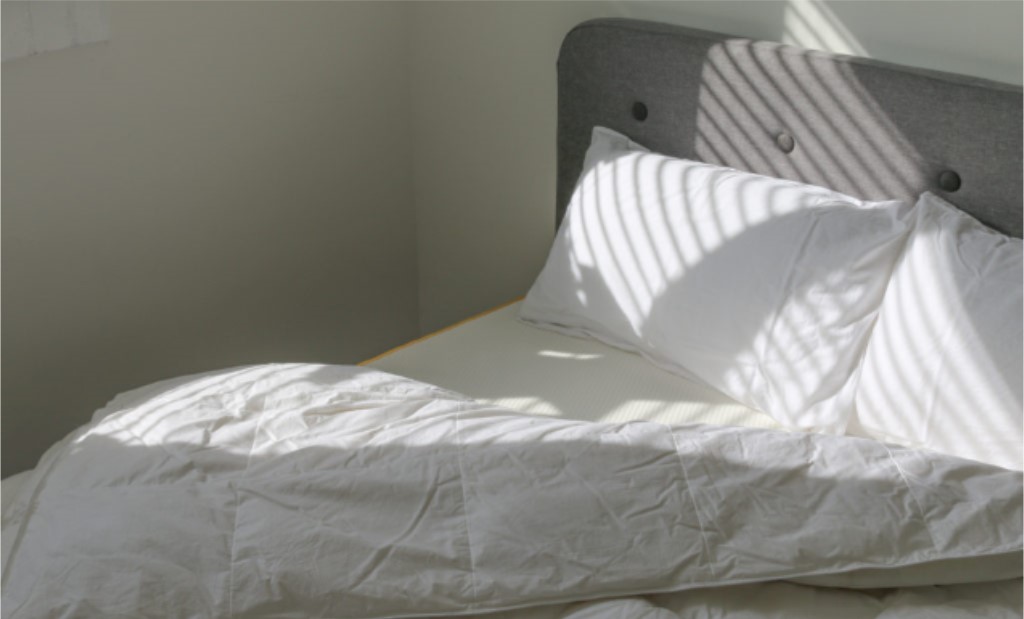If you’ve been having trouble sleeping in recent weeks, you’re certainly not alone. With an overwhelming barrage of news, worries and a disrupted routine it’s no wonder that some of us are having trouble nodding off or are waking up during the night. It’s an important time for self-care and sleep is a key factor in mental health – as a lack of sleep causes stress, and good sleep can boost feelings of wellbeing. Here are some ways to boost your bedtime routine to make sure you get the restorative, relaxing sleep you need…
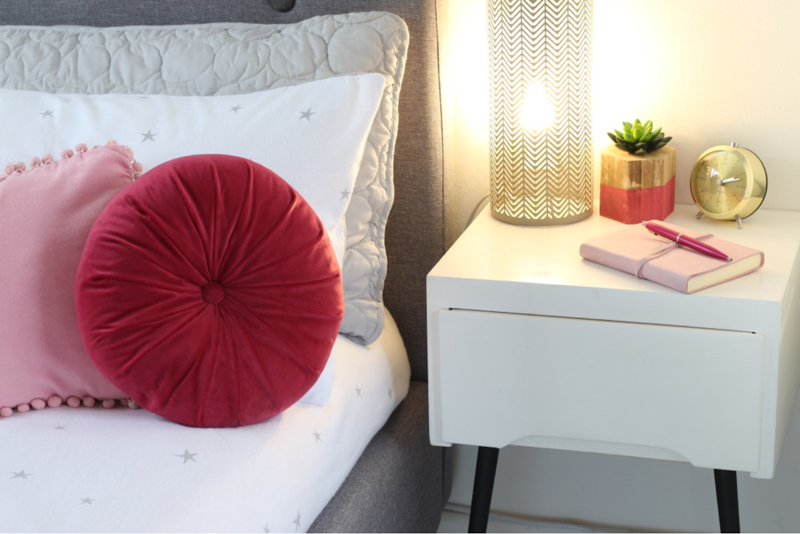
1 SLEEP ROUTINE
Having a routine helps your body to get used to the idea of bedtime so make sure that you go to bed and wake up at the same time every day. Even if you’ve had a rough night, don’t lie-in – get up at the usual time and carry on with your day. You might be yawning by 7pm but at least that means you’ll have no trouble sleeping when you get into bed at your usual time.
2 EVENING ROUTINE
Likewise, show your body and mind that it’s coming up to bedtime by having an evening routine where you dim the lights and have a warm drink. Opt for something caffeine-free but don’t have it too close to bedtime as you may need to get up in the night to go to the loo. Lower levels of lighting helps your internal body clock to recognise that it’s time for bed, much like a natural sunset.
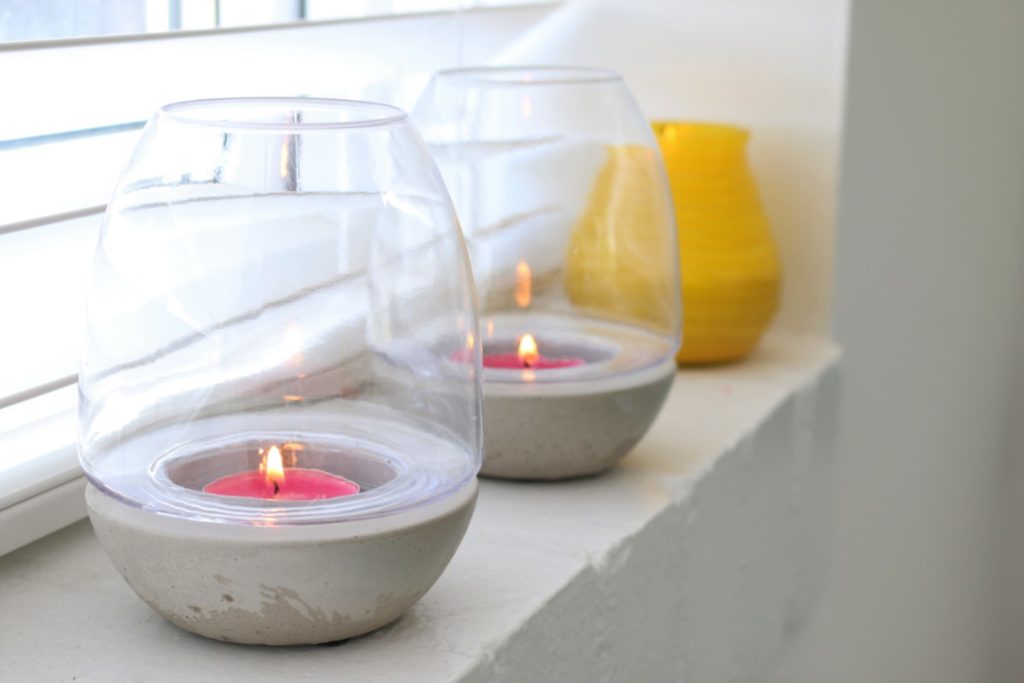
3 DITCH THE DEVICES
Which is precisely why it’s not a good idea to use devices in the evening. The blue light from phones and tablets makes your body think it’s still daylight and therefore will find it harder to go to sleep if you’ve only just put down your phone. Find something else to do in the evenings instead – something relaxing and restful, where you can get cosy and feel snug.
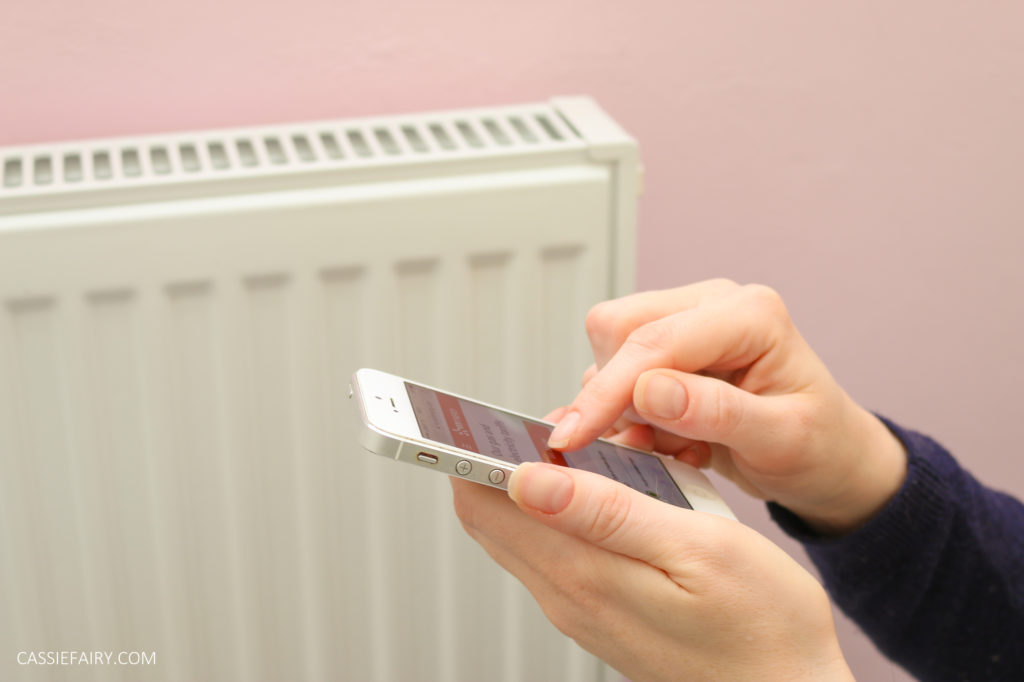
4 MEDITATION
Taking time our for yourself and clearing your mind is a great idea when you’re trying to wind-down for the day. Dan Harris, author of 10% Happier, says “there’s an enormous amount of science suggesting meditation is really good for you, and can do everything from lowering your blood pressure to boosting your immune system” and a strong immune system is certainly something we could all do with right now.
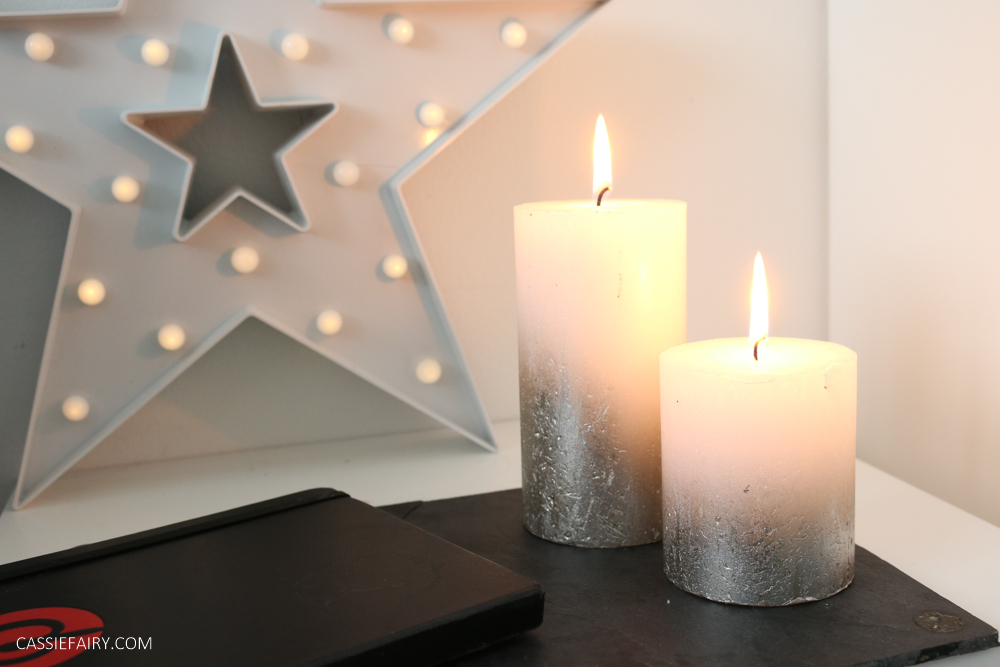
You can access free meditation and yoga workshops during the day with the Corona Comfort sessions from Mindsprings and there’s a free anxiety course available too. All of these things will help you to get your brain into a more calm state in general, which will help you when it comes to bedtime.
5 RELAXATION
Any kind of relaxation in the evenings will help you feel rested and ready for bed. Try listening to calm music – even better if you can do it without using a device, such as playing it through your smart speaker or on a CD or LP. I personally like Night Jazz on YouTube but any slow music would be lovely listening. Also reading a book will help you to get to sleep, as long as it’s not an e-book on a tablet. Anything that takes you away from screens and the news will be beneficial.
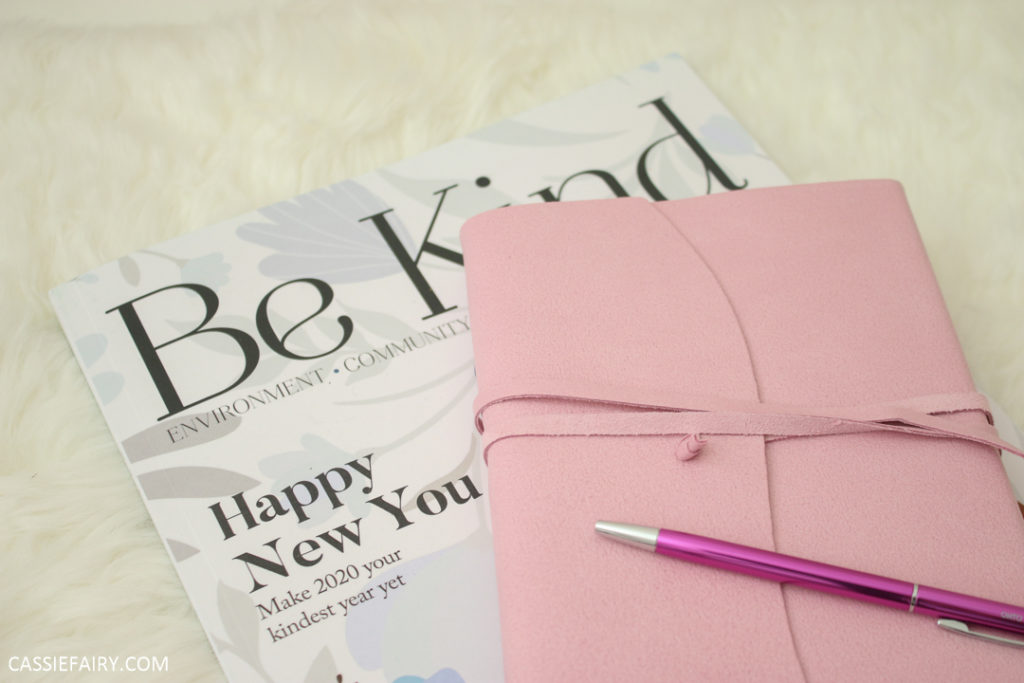
6 BATHTIME
Which brings us nicely onto taking a relaxing bath at night. A bathtime routine works for babies and children, so there’s no reason why it wouldn’t work for you too. Go for a warm bath – not too hot, not too cold – and add a lavender fragrance if you can (again, take inspiration from kids and check out the lavender scented baby bubble baths). Get into your fresh PJs afterwards and wrap up in a dressing gown or go straight to bed.

7 PLANTS IN THE BEDROOM
I’ve just mentioned lavender, which is a really soothing scent and can help induce sleep, but there are other plants that can help you to sleep more soundly too. Jasmine flowers and snake plants are said to help reduce anxiety. And by simply adding an aloe vera to the bedroom you may notice a difference in the quality of your sleep as it produces oxygen at night, which can help combat insomnia.
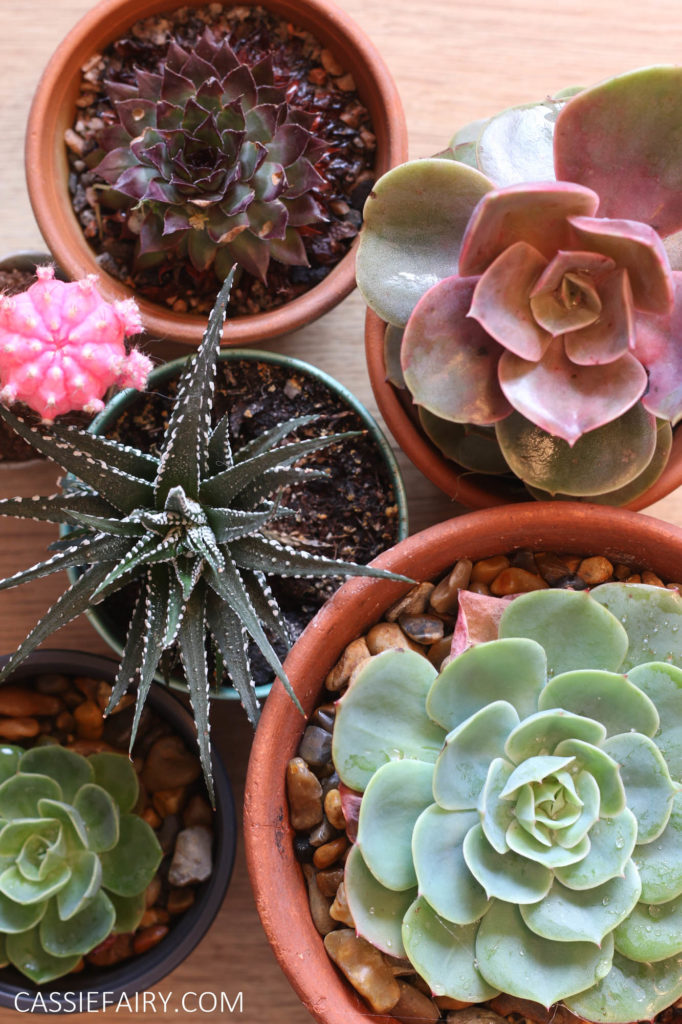
8 BEAUTIFUL BEDROOM
At the very least, make sure that your bedroom is a lovely place to be. You don’t want to see clutter or mess that makes your feel guilty and on-edge, so put everything away and move unnecessary items out of the room. Change the bedding, as there really is nothing better than fresh sheets, is there? A clean, comfortable mattress, touchable textures and plump pillows will all make you feel like you want to get into bed.
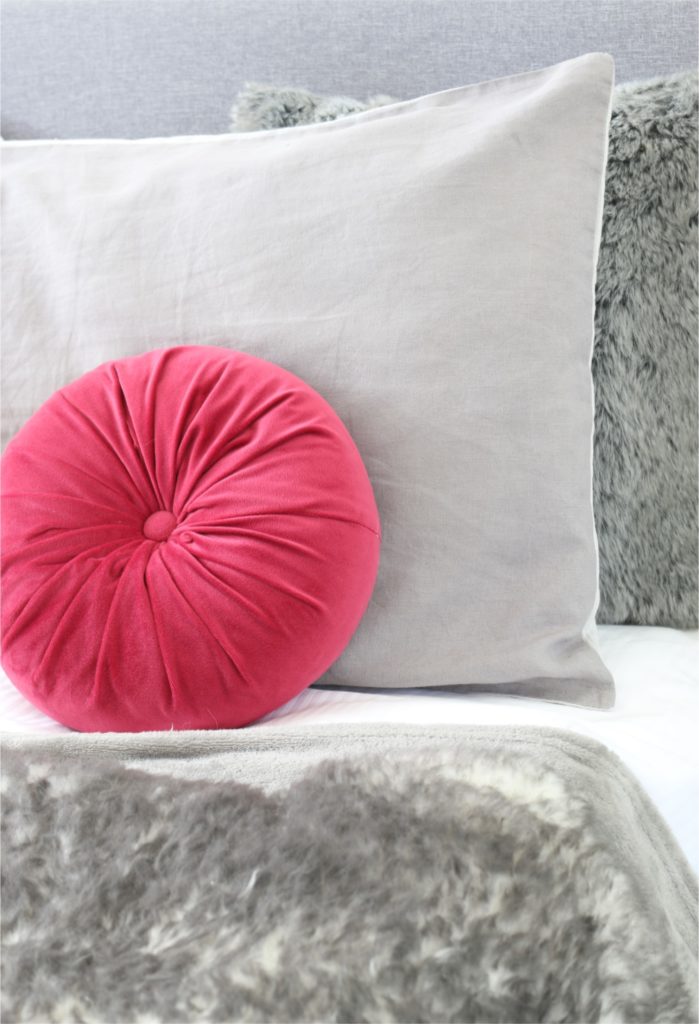
When you get out of bed in the morning, instantly re-make the bed and pile on the cushions. This means that, when you go into the bedroom in the evening, it’ll look so cosy and enticing that you’ll want to go to bed early! Even going in the bedroom during the day and looking at the soft sheets and pouffy duvet should make you feel excited about bedtime.
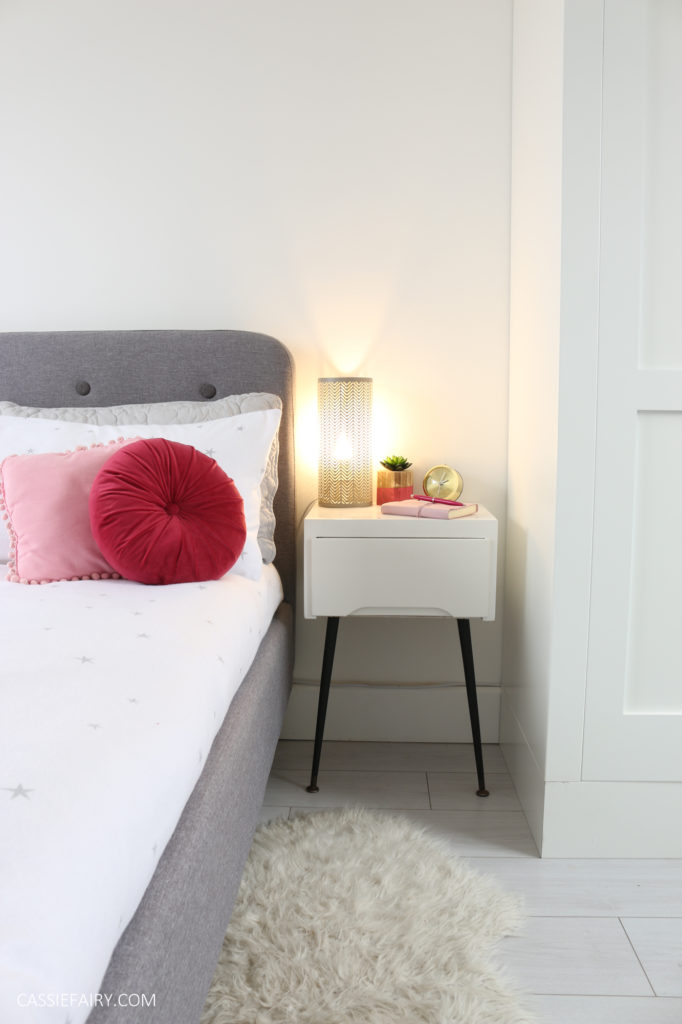
9 JOURNAL WRITING
Getting all your thoughts out of your head before bed is a great way to calm your mind and get ready for sleep. You could write down the things that have happened during the day – and for an added wellbeing boost, make them the things that you are grateful for. Or you could write down your worries so that they aren’t stuck inside your head any more. Even if you just want to write a list of what you’ve got to do tomorrow this will help you get to sleep because you won’t be lying awake making a mental list instead.
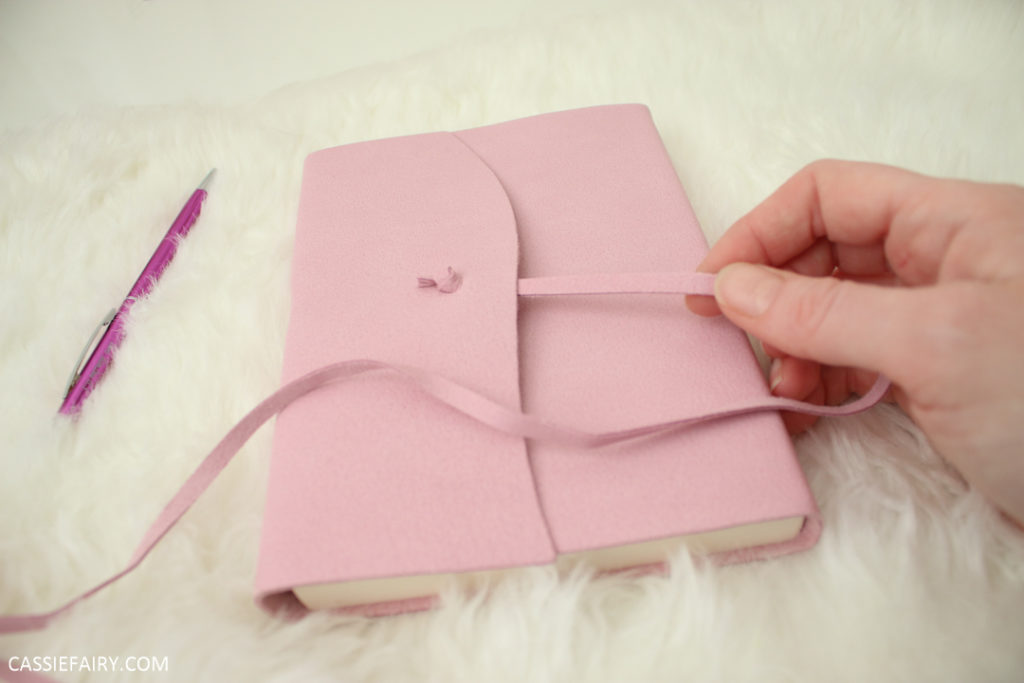
I hope that a combination of these tips will help you sleep more soundly, no matter how worried or stressed you feel during the day. Let me know your own techniques for dropping off to sleep in the comments below so that we can all benefit from your ideas too 🙂
PIN IT FOR LATER
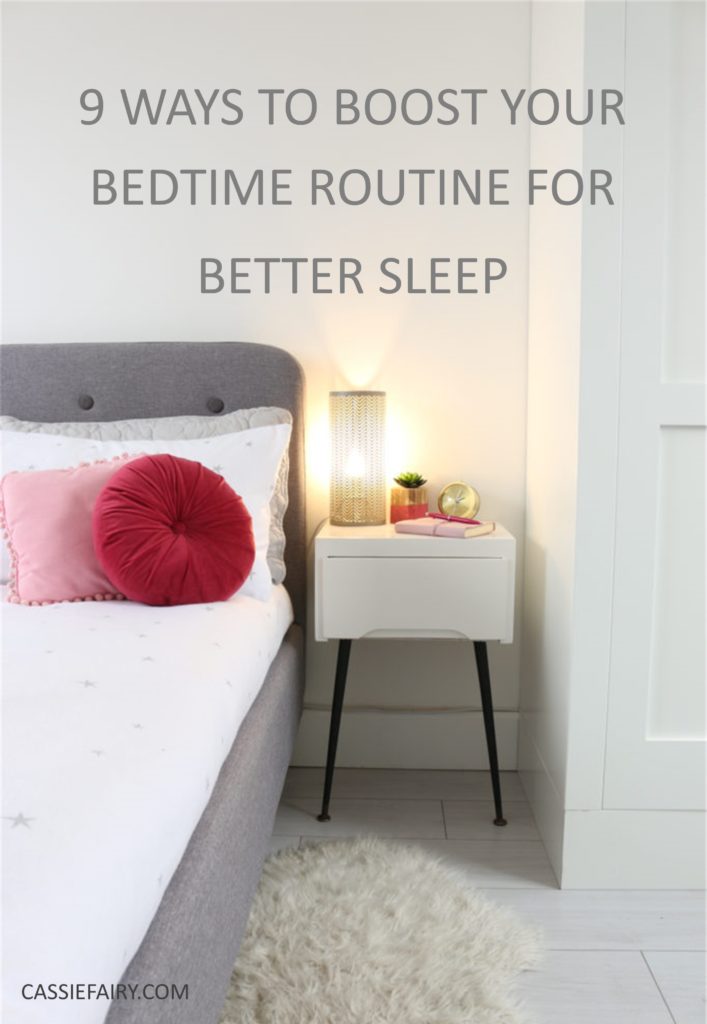
This article is a sponsored collaboration. The pink links in the content indicate a sponsored link or information source. The blog post reflects my own experience and the sponsor hasn’t had any control over my content 🙂







